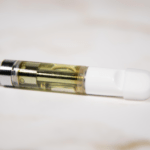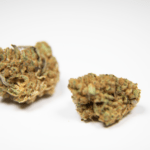Cannabidiol (CBD) and tetrahydrocannabinol (THC) are the two primary cannabinoids found in cannabis. While both have therapeutic benefits, they interact differently with the body, making them suitable for different types of medical use. Understanding their distinct properties can help consumers make informed choices when seeking relief for various ailments.
CBD: Non-Intoxicating with Therapeutic Potential
CBD is a non-psychoactive cannabinoid, meaning it does not produce the “high” commonly associated with cannabis. Instead, CBD interacts with the body’s endocannabinoid system to provide therapeutic effects without altering the user’s mental state. This makes it an appealing option for individuals looking for relief without experiencing the effects of intoxication.
Benefits of CBD
Research has shown that CBD has anti-inflammatory, analgesic, and anxiolytic properties, making it beneficial for a wide range of conditions, including:
- Chronic Pain: CBD can help reduce pain by interacting with pain receptors in the brain and reducing inflammation.
- Anxiety and Depression: CBD’s calming effects may help alleviate symptoms of anxiety and improve mood.
- Epilepsy and Seizures: The FDA-approved drug Epidiolex, derived from CBD, is used to treat rare forms of epilepsy, demonstrating CBD’s potential in managing seizures.
- Arthritis: CBD creams and oils may reduce joint inflammation, providing relief for arthritis patients.
Since CBD does not impair cognitive function, it is often recommended for those who need symptom relief while maintaining mental clarity.
THC: Psychoactive with Stronger Symptom Relief
THC is the psychoactive component of cannabis that creates the “high” effect by binding directly with the brain’s CB1 receptors. This binding produces both mental and physical effects, making THC a potent option for severe symptoms that may not respond well to CBD alone.
Benefits of THC
For medical consumers, THC offers relief in cases where more potent effects are needed, including:
- Severe Pain and Inflammation: THC’s stronger analgesic properties make it beneficial for intense pain, especially in conditions like cancer or post-surgical recovery.
- Nausea and Appetite Stimulation: THC is highly effective in reducing nausea and increasing appetite, often used by cancer patients undergoing chemotherapy.
- Sleep Disorders: THC’s sedative effects may help those struggling with insomnia by promoting deeper and more restful sleep.
- Muscle Spasms and Spasticity: THC can reduce muscle spasms, making it beneficial for patients with multiple sclerosis or spinal injuries.
When to Shift from CBD to THC
If a patient’s symptoms are not adequately managed by CBD alone, it may be time to consider adding or switching to THC. Conditions involving intense pain, chronic nausea, or severe inflammation may benefit from THC’s stronger therapeutic properties. Patients with advanced or terminal illnesses often turn to THC for symptom management, as its effects can significantly improve quality of life in difficult times.
Conclusion
Both CBD and THC have unique therapeutic benefits, making each suited to specific ailments. While CBD is ideal for those seeking relief without psychoactive effects, THC offers a stronger option for severe conditions. Consulting with a medical professional can help determine the right cannabinoid choice based on individual health needs.






